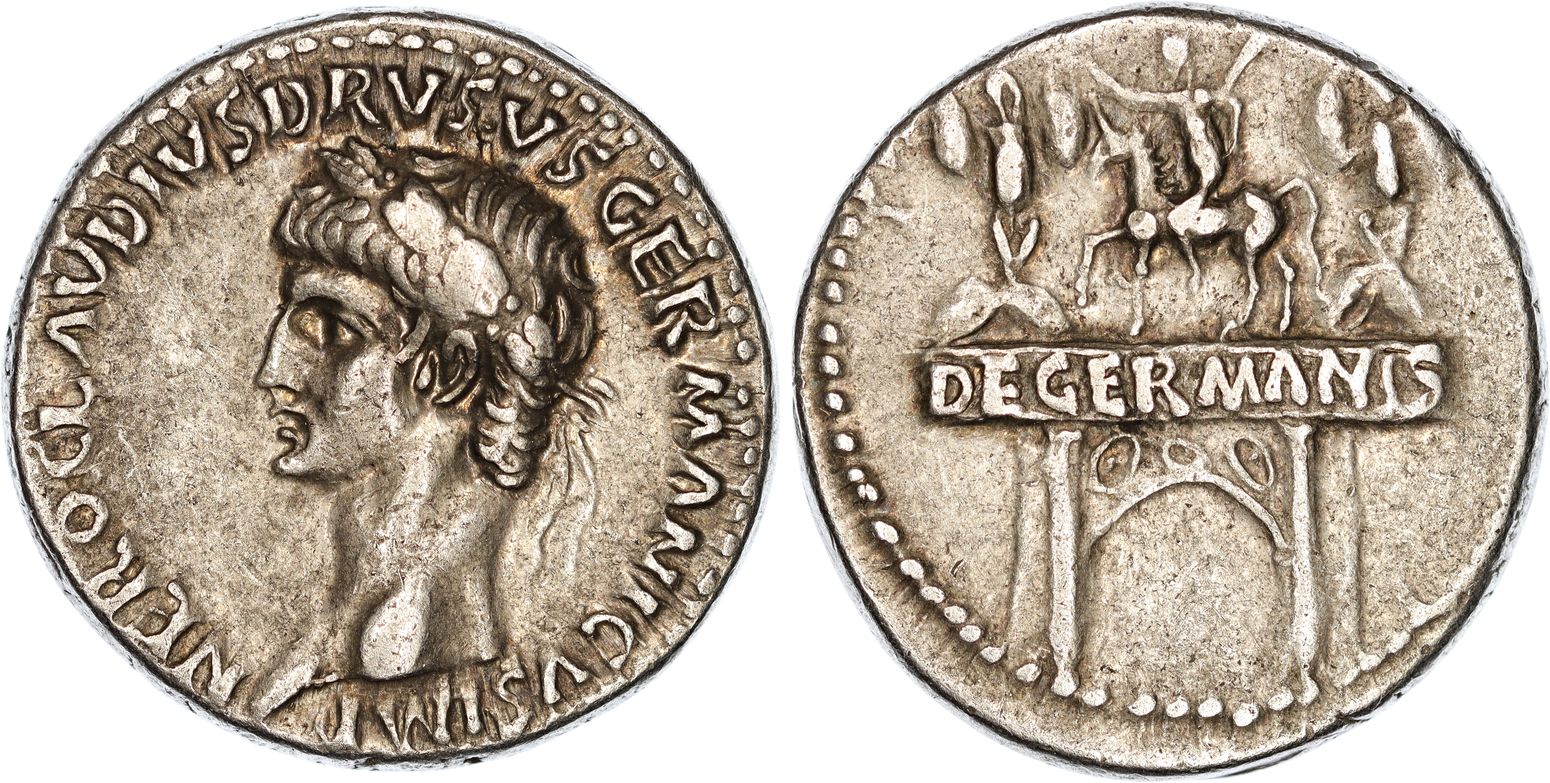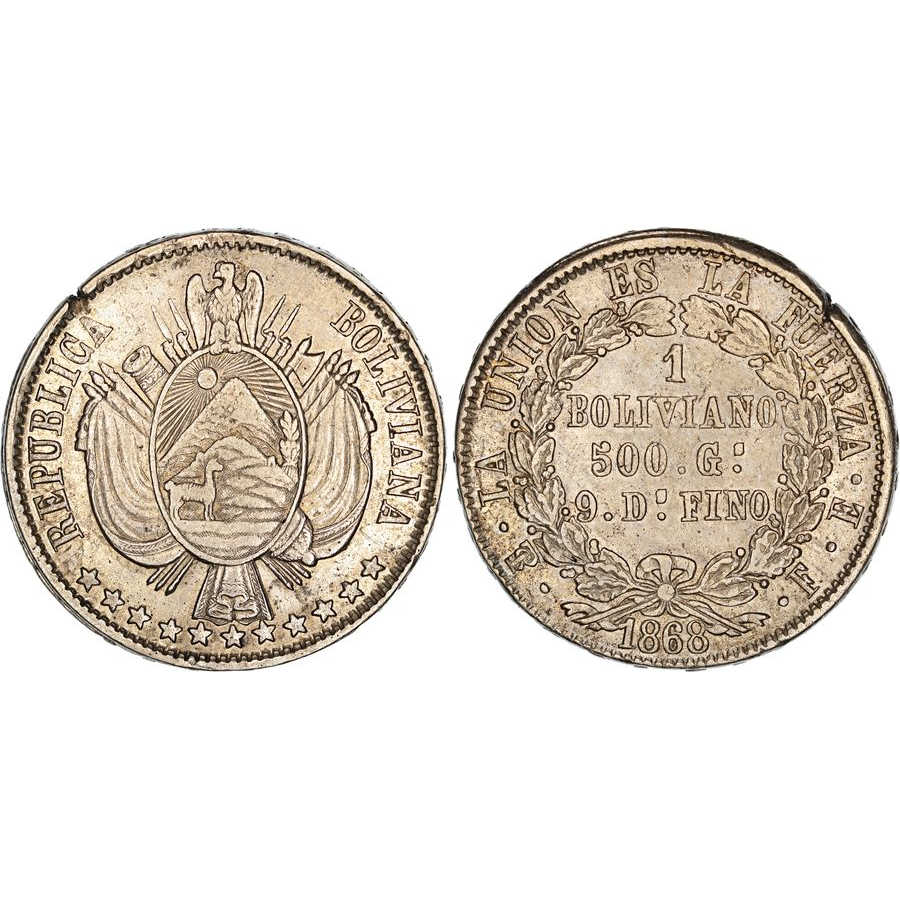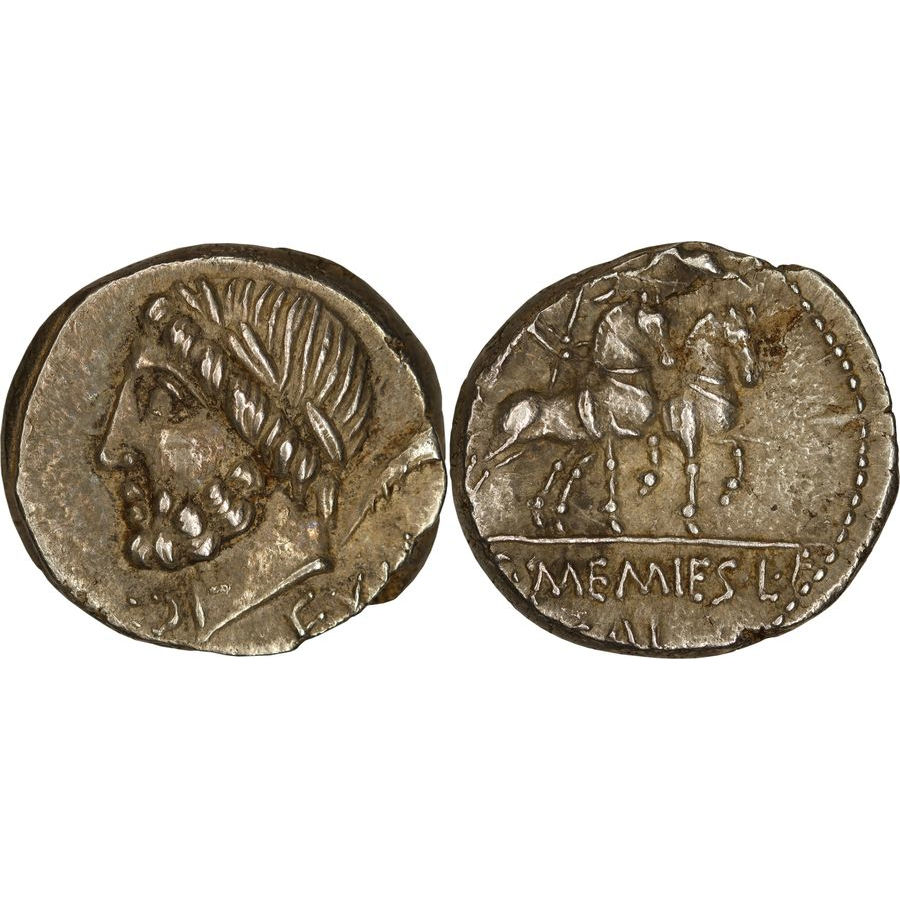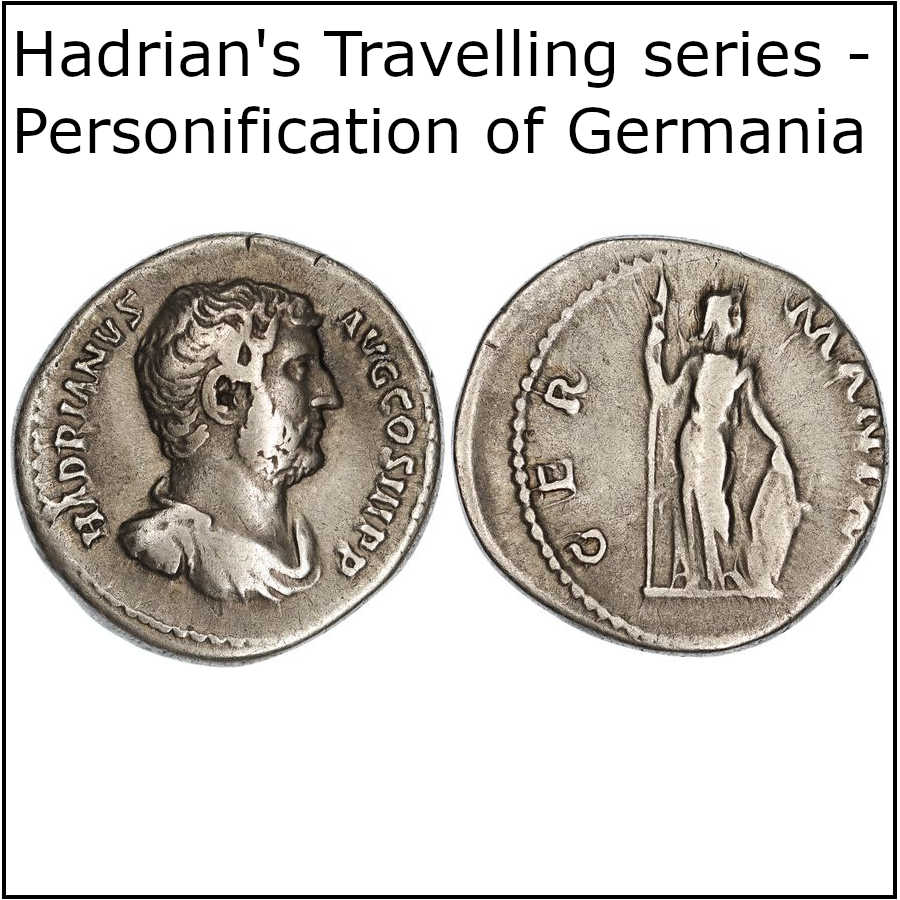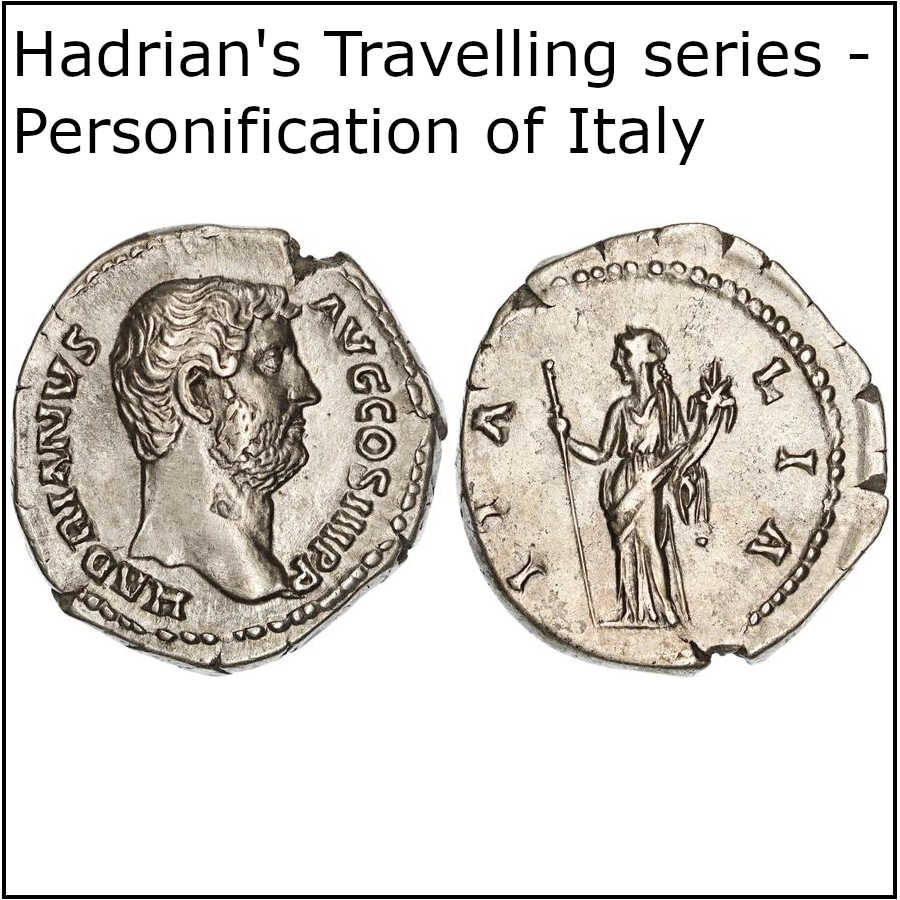Description
Nero Claudius Drusus Germanicus, Roman Military Commander of the Julio-Claudian Dynasty and the Father of Claudius I, died 9 BC, Silver Denarius (3.88g, 18mm), Rome mint 41-42 AD, struck under Roman Emperor Claudius I. Obverse: Laureate head of Drusus the Elder facing to the left, legend surrounds, “NERO CLΛVDIVS DRVSVS GERMΛNICVS IMP”. Reverse: Triumphal arch bearing the inscription “DE GERMANIS” on architrave, surmounted by equestrian statue of Drusus the Elder to the left, raising right hand and holding spear in left, trophies of captured Germanic arms either side. RIC-72 (Claudius); RSC-4; BMCRE (Claudius)-101. Seldom seen available for commerce and even less often available in such preservation, a noteworthy portrait and very well centred each side displaying full devices, lightly toned, Very Fine, reverse near Very Fine, scarce.
The obverse Latin legend reads “Nerō Claudius Drusus Germānicus, imperātor”, naming Drusus the Elder in full as well as his title of Imperator, granted to him by his legionaries following his victory over the Cherusci ambush in 11 BC. Although a title that would become synonymous with imperium and an exclusive praenomen to the emperors of the Principate, the title of Imperator was originally an honorific title awarded to military commanders – Drusus the Elder as well as his eldest son Germanicus being two examples. The reverse inscription on the triumphal arch reads “dēvīcit Germānīs”, with an English translation of “he decisively defeated the Germans”. The Latin verb ‘dēvincō’ for ‘conquer’ or ‘decisively defeat’ is in the third-person singular perfect active indicative, as it is in the past tense, and the noun ‘Germānus’ is in the dative plural as the subject of the verb. This inscription refers to Drusus’ repeated victories over the Germanic tribes in Germania, and the reason for being granted the hereditary honorific title of ‘Germanicus’. The nomen Germanicus would be used by many in his line, including his eldest son as an agnomen, becoming ‘Germanicus’ Julius Caesar, his youngest son and future emperor Claudius I, as well as the future emperors Caligula, his grandson, and Nero, his great-grandson.
